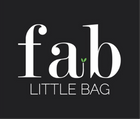
WHY LANGUAGE MATTERS – CALL IT BY ITS NAME - BY LEONA KOSHUTOVA
There seems to be an infinite list of words people prefer to use to refer to a vagina, other than vagina. And while some of these nicknames might be amusing/disturbing, like the idea of a penis fly trap, we have to wonder why so many people feel so uncomfortable calling a vagina by its anatomical name? Why is it more acceptable to refer to a vagina with reference to a penis, as above, than to just call it what it is?
Vagina Isn’t A Dirty Word!
Euphemisms for vagina exist on a wide spectrum, ranging from the affectionate to the vulgar. But historically, they exist as a way to avoid mentioning a word or topic which is considered taboo, and to replace it with a more ‘palatable’ alternative. People (read: men) felt so uneasy at even the idea of female genitalia (and by association, female sexuality), that they created hundreds of new terms for it. But surely, we know better now... there is nothing vulgar or sexual about having a vagina. It’s simply a part of the female anatomy of 50% of the population, not some kind of illness or pathology!
Behind the scenes of nicknames for Vagina
Some of the most common ‘polite’ names for vagina are frankly disturbing! Take for example lady flower. Using flower imagery to refer to female genitalia and sexuality is something that can be traced back for centuries. This is partly on account of the aesthetic similarity of certain flowers to the vagina, but there are also strong connections with and connotations of the female duty to reproduce, and the female duty to be an object of beauty. With the main evolutionary goal of a flower being to attract insects, in order to reproduce via pollination, this euphemism suggests that a woman’s main goal must also be to reproduce. Likewise, if the flower can achieve its goal by attracting insects with its colour and beauty, a woman can achieve her goal by attracting a mate with hers. We are right back to penis fly traps and it’s beginning to sound a bit creepy, right? And if you take the imagery a step further, the flower is something which can be picked and displayed in a vase, like a woman (and especially her virginity and innocence) can be taken and owned. Not really a very modern, or ‘polite’ take is it? It isn’t the kind of subliminal messaging we want to keep peddling to future generations.
What are your code words for Vagina?
As usual it all starts in childhood! As children, we are often taught to call our genitals by a cute name, as if vagina is too dirty a word; foo-foo, minky, thingy, vajayjay, downstairs, doh-dah, lady garden, noo-noo… Then there are a load which frankly are purely insulting and offensive like beef curtain, hole, axe wound??! The latter more obviously, but also the former all create this sense of shame around the word leading to shame around the actual thing.
When is a vagina a vulva?
The answer is never, as they are two different things, but we frequently mix them up! Most of the time when we say vagina, we probably really mean to say vulva! (The vagina is the passage which connects the uterus to the outside of your body, and the vulva is the outside part). How can we ask questions and learn about the functions and capabilities of our bodies, if we can’t even call all its parts by their names? How can we develop a healthy body image if we’re embarrassed by even the names of parts of our anatomy, let alone the parts themselves?
Rewriting The Narrative
So, the nicknames given to vaginas are based largely on an ancient male viewpoint, reinforce patriarchal values, and distance us from a genuine understanding of what is frankly an amazing piece of anatomy. What do we do to fix this? Well, we can start by calling a vagina a vagina, and a vulva and vulva, and telling our kids this too.
Look - if calling your vagina a noo-noo works for you, then it works for you. But if you feel the need to censor your language because of a sense of discomfort or stigma around what is fundamentally a biological structure, then maybe it’s time to reconsider. The female body and female sexuality have suffered enough censorship – both linguistic and socio-cultural.
So speak openly, don’t be afraid to mention the word vagina in public, and discuss the implications of having one with those around you – whether it be speaking to your mum about tips for dealing with heavy periods (https://fablittlebag.com/blogs/news/how-to-deal-with-heavy-periods), raising any concerns about irregularities you might have in your menstrual cycle with your GP (https://fablittlebag.com/blogs/news/why-am-i-having-irregular-periods) , or chatting with your friends about the appalling lack of bins for tampon disposal in the toilets at the festival you’re at and discovering the saviour sanitary disposal bags that are FabLittleBags (https://fablittlebag.com/collections/frontpage)! Because there’s a place for privacy, but none for secrecy or stigma in the mission for female empowerment.
